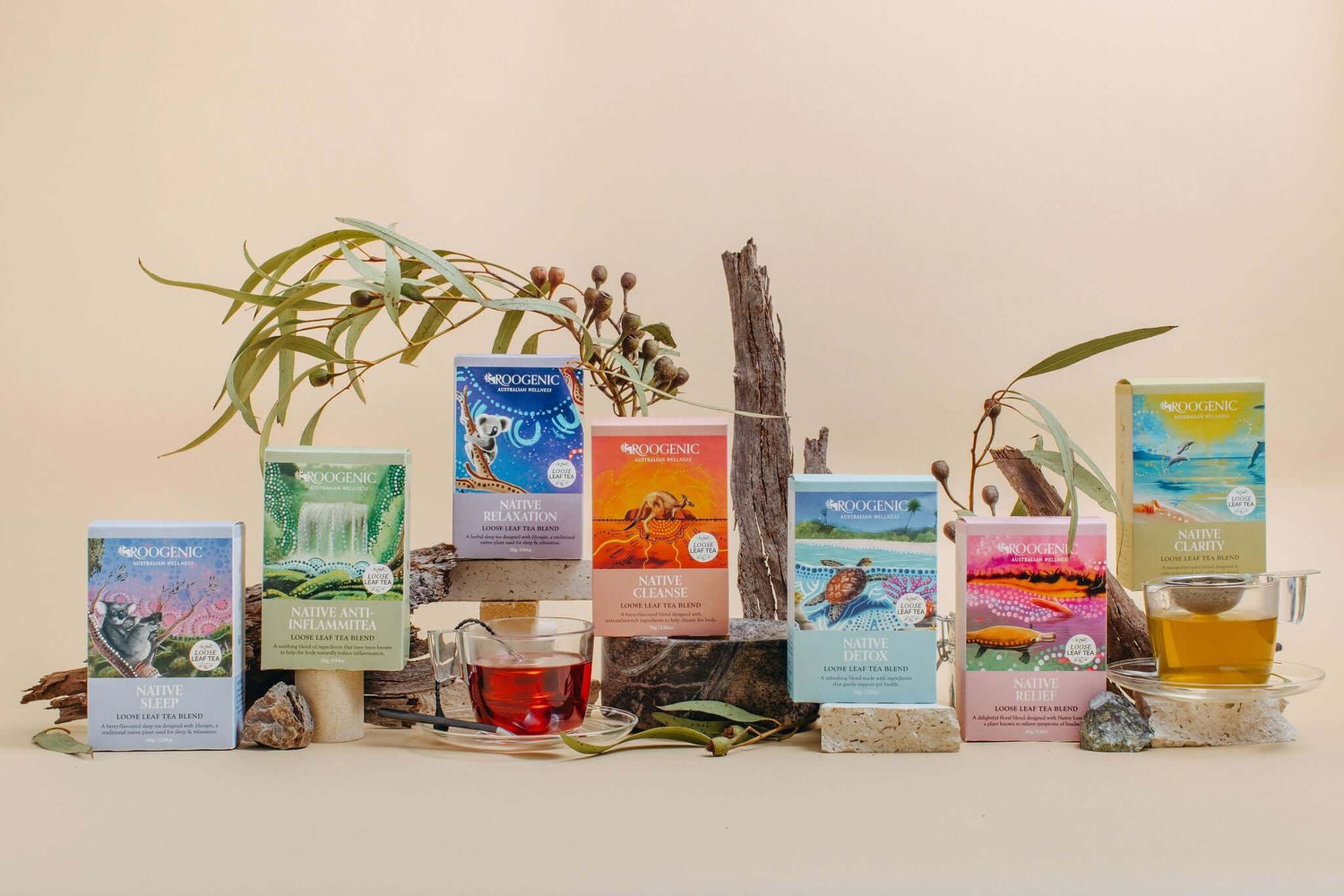Discover information about the power of Australian Native plants to create powerful remedies for sleep, gut health, metabolism, detoxification and more.
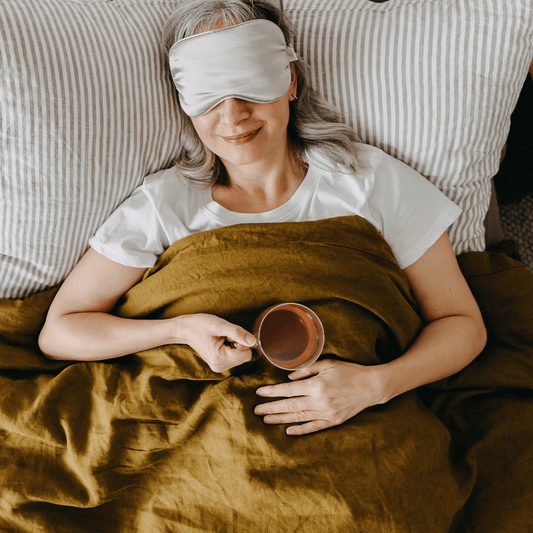
How to Get a Deep Sleep
Tossing and turning? Waking up feeling less rested than when you went to sleep? Ready for a change? Read on for insights on how to achieve a deeper sleep: What is deep sleep? Deep sleep, also known as slow-wave sleep, is a stage of sleep that occurs during the sleep cycle. It is characterized by slower brain waves and a decreased level of responsiveness to external stimuli. During deep sleep, the body is in a state of relaxation and the muscles are relaxed. Deep sleep is important for physical and emotional well-being, as it helps to repair and restore the body and mind. It is also thought to play a role in memory consolidation and the regulation of mood and emotions. Deep sleep typically occurs during the first half of the night and is followed by a lighter stage of sleep known as REM (rapid eye movement) sleep. Why is Deep Sleep important? Deep sleep is important for several reasons. It helps to: Repair and restore the body: During deep sleep, the body releases growth hormone, which promotes tissue growth and repair. This can help to repair damage caused by stress, ultraviolet rays, and other harmful exposures. Consolidate memories: Deep sleep is thought to play a role in memory consolidation, which is the process of strengthening and stabilizing new memories. Regulate mood and emotions: Deep sleep is believed to help regulate mood and emotions by helping to balance levels of neurotransmitters such as serotonin and dopamine, which are involved in mood and emotions. Improve cognitive function: Research suggests that deep sleep may help to improve cognitive function, including memory, learning, and problem-solving abilities. Overall, deep sleep is important for physical and emotional well-being. It helps to repair and restore the body and mind, and is believed to play a role in memory consolidation and the regulation of mood and emotions. Check-in: Are you getting enough deep sleep? There are a few signs that you may be getting enough deep sleep: You wake up feeling refreshed and alert: If you wake up feeling rested and ready to start the day, it may be a sign that you are getting enough deep sleep. You are not excessively tired during the day: If you are consistently feeling tired or drowsy during the day, it may be a sign that you are not getting enough deep sleep. You have a regular sleep pattern: If you go to bed and wake up around the same time every day, it may be a sign that you are getting enough deep sleep. You are not experiencing sleep disorders: If you are not experiencing sleep disorders such as insomnia or sleep apnea, it may be a sign that you are getting enough deep sleep. However, the most accurate way to determine whether you are getting enough deep sleep is to use a sleep tracking device or app that can monitor your sleep stages. These devices use sensors to track your sleep patterns and can provide information on the amount of deep sleep you are getting each night. Our tips on getting a deep sleep There are several things you can do to help promote deep sleep: Establish a consistent sleep schedule: Going to bed and waking up at the same time every day can help regulate your body's sleep-wake cycle and promote deep sleep. Create a sleep-friendly environment: A cool, dark, and quiet bedroom can help create the ideal conditions for sleep. Avoid stimulating activities before bed: Engaging in activities that stimulate the brain, such as watching TV or using electronic devices, can make it harder to fall asleep. Instead, try relaxing activities such as reading or taking a warm bath before bed. Exercise regularly: Regular physical activity can help improve sleep quality and promote deep sleep. Just be sure to avoid vigorous exercise close to bedtime, as it may make it harder to fall asleep. Eat a healthy diet: A diet rich in fruits, vegetables, and whole grains and low in sugar and processed foods may help improve sleep quality. Avoid alcohol and caffeine: These substances can disrupt sleep, so it's best to avoid them close to bedtime. Consider natural sleep aids: Some people find that natural remedies such as melatonin, valerian root, and chamomile tea can help promote deep sleep. However, it's always a good idea to speak with a healthcare provider before taking any supplement. Remember, everyone is different and what works for one person may not work for another. It may take some trial and error to find what works best for you. Looking for sleep support? Try a sleep tea or powder to nightly support a deeper, more restorative sleep.
Read moreHow to Get a Deep Sleep
Tossing and turning? Waking up feeling less rested than when you went to sleep? Ready for a change? Read on for insights on how to achieve a deeper sleep: What is deep sleep? Deep sleep, also known as slow-wave sleep, is a stage of sleep that occurs during the sleep cycle. It is characterized by slower brain waves and a decreased level of responsiveness to external stimuli. During deep sleep, the body is in a state of relaxation and the muscles are relaxed. Deep sleep is important for physical and emotional well-being, as it helps to repair and restore the body and mind. It is also thought to play a role in memory consolidation and the regulation of mood and emotions. Deep sleep typically occurs during the first half of the night and is followed by a lighter stage of sleep known as REM (rapid eye movement) sleep. Why is Deep Sleep important? Deep sleep is important for several reasons. It helps to: Repair and restore the body: During deep sleep, the body releases growth hormone, which promotes tissue growth and repair. This can help to repair damage caused by stress, ultraviolet rays, and other harmful exposures. Consolidate memories: Deep sleep is thought to play a role in memory consolidation, which is the process of strengthening and stabilizing new memories. Regulate mood and emotions: Deep sleep is believed to help regulate mood and emotions by helping to balance levels of neurotransmitters such as serotonin and dopamine, which are involved in mood and emotions. Improve cognitive function: Research suggests that deep sleep may help to improve cognitive function, including memory, learning, and problem-solving abilities. Overall, deep sleep is important for physical and emotional well-being. It helps to repair and restore the body and mind, and is believed to play a role in memory consolidation and the regulation of mood and emotions. Check-in: Are you getting enough deep sleep? There are a few signs that you may be getting enough deep sleep: You wake up feeling refreshed and alert: If you wake up feeling rested and ready to start the day, it may be a sign that you are getting enough deep sleep. You are not excessively tired during the day: If you are consistently feeling tired or drowsy during the day, it may be a sign that you are not getting enough deep sleep. You have a regular sleep pattern: If you go to bed and wake up around the same time every day, it may be a sign that you are getting enough deep sleep. You are not experiencing sleep disorders: If you are not experiencing sleep disorders such as insomnia or sleep apnea, it may be a sign that you are getting enough deep sleep. However, the most accurate way to determine whether you are getting enough deep sleep is to use a sleep tracking device or app that can monitor your sleep stages. These devices use sensors to track your sleep patterns and can provide information on the amount of deep sleep you are getting each night. Our tips on getting a deep sleep There are several things you can do to help promote deep sleep: Establish a consistent sleep schedule: Going to bed and waking up at the same time every day can help regulate your body's sleep-wake cycle and promote deep sleep. Create a sleep-friendly environment: A cool, dark, and quiet bedroom can help create the ideal conditions for sleep. Avoid stimulating activities before bed: Engaging in activities that stimulate the brain, such as watching TV or using electronic devices, can make it harder to fall asleep. Instead, try relaxing activities such as reading or taking a warm bath before bed. Exercise regularly: Regular physical activity can help improve sleep quality and promote deep sleep. Just be sure to avoid vigorous exercise close to bedtime, as it may make it harder to fall asleep. Eat a healthy diet: A diet rich in fruits, vegetables, and whole grains and low in sugar and processed foods may help improve sleep quality. Avoid alcohol and caffeine: These substances can disrupt sleep, so it's best to avoid them close to bedtime. Consider natural sleep aids: Some people find that natural remedies such as melatonin, valerian root, and chamomile tea can help promote deep sleep. However, it's always a good idea to speak with a healthcare provider before taking any supplement. Remember, everyone is different and what works for one person may not work for another. It may take some trial and error to find what works best for you. Looking for sleep support? Try a sleep tea or powder to nightly support a deeper, more restorative sleep.
Read more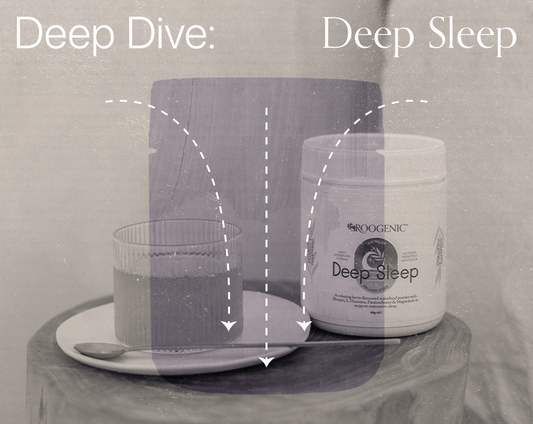
Deep Dive: Deep Sleep Powder
Deep Sleep is a synergistic, multi-action blend designed to soothe the mind and support a restful and restorative sleep. It contains herbs, nutrients, amino acids and prebiotics with the star ingredient Jilungin to help you drift off into a deep restorative sleep and wake feeling refreshed. Science Meets Nature: The Ingredients Behind Deep Sleep Vitamin B6 Vitamin B6 is used in the production of both, the sleep promoting hormone melatonin and the main inhibitory and calming neurotransmitter gamma aminobutyric acid (GABA). References: (1, 2, 3, 4, 5, 6, 7, 191, 192, 197) Magnesium Magnesium is an important anti-stress mineral and can improve sleep by encouraging relaxation. It can improve melatonin levels and protects the body from the negative impacts of stress. References: (7, 8, 9, 10, 11). Prebiotics Sprouted fermented greens, inulin, green banana resistant starch, and purple cabbage; prebiotic rich food. Prebiotic fibers and resistant starch feed gut bacteria and are slowly fermented by these bacteria in the colon to produce short-chain fatty acids (SCFAs). SCFAs play an important role in gut health, immune health and based on preclinical research they could also have the potential to improve stress-resilience and sleep. References: (12, 13, 14, 15, 16, 17, 18, 19, 20) L-Theanine The amino acid L-theanine has anti-stress and anti-anxiety properties. It has been shown to counteract caffeine's effects and promote relaxation. It also plays a neuroprotective role by increasing activity of GABA receptors and antioxidant enzymes. References: (39, 40, 41, 42, 196) Lemon balm Lemon balm is often used as a mild sedative and has been found to improve anxiety and sleep quality. Traditionally, lemon balm was used to alleviate stress and anxiety, improve sleep, and treat digestive complaints. References: (29, 30, 31, 32, 33) Passionflower Passionflower is a popular herb for anxiety and nervousness and has shown positive results regarding anxiety and subjective sleep quality. Traditionally, passionflower was used as a herbal sedative, anti-anxiety and sleep remedy for insomnia and other sleep disorders. References: (21, 22, 23, 24, 193, 194)
Read moreDeep Dive: Deep Sleep Powder
Deep Sleep is a synergistic, multi-action blend designed to soothe the mind and support a restful and restorative sleep. It contains herbs, nutrients, amino acids and prebiotics with the star ingredient Jilungin to help you drift off into a deep restorative sleep and wake feeling refreshed. Science Meets Nature: The Ingredients Behind Deep Sleep Vitamin B6 Vitamin B6 is used in the production of both, the sleep promoting hormone melatonin and the main inhibitory and calming neurotransmitter gamma aminobutyric acid (GABA). References: (1, 2, 3, 4, 5, 6, 7, 191, 192, 197) Magnesium Magnesium is an important anti-stress mineral and can improve sleep by encouraging relaxation. It can improve melatonin levels and protects the body from the negative impacts of stress. References: (7, 8, 9, 10, 11). Prebiotics Sprouted fermented greens, inulin, green banana resistant starch, and purple cabbage; prebiotic rich food. Prebiotic fibers and resistant starch feed gut bacteria and are slowly fermented by these bacteria in the colon to produce short-chain fatty acids (SCFAs). SCFAs play an important role in gut health, immune health and based on preclinical research they could also have the potential to improve stress-resilience and sleep. References: (12, 13, 14, 15, 16, 17, 18, 19, 20) L-Theanine The amino acid L-theanine has anti-stress and anti-anxiety properties. It has been shown to counteract caffeine's effects and promote relaxation. It also plays a neuroprotective role by increasing activity of GABA receptors and antioxidant enzymes. References: (39, 40, 41, 42, 196) Lemon balm Lemon balm is often used as a mild sedative and has been found to improve anxiety and sleep quality. Traditionally, lemon balm was used to alleviate stress and anxiety, improve sleep, and treat digestive complaints. References: (29, 30, 31, 32, 33) Passionflower Passionflower is a popular herb for anxiety and nervousness and has shown positive results regarding anxiety and subjective sleep quality. Traditionally, passionflower was used as a herbal sedative, anti-anxiety and sleep remedy for insomnia and other sleep disorders. References: (21, 22, 23, 24, 193, 194)
Read more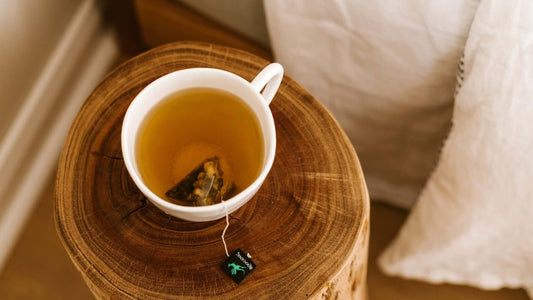
5 Simple Tips to Help You Sleep Better
Most of us have a complicated relationship with sleep. If you’re a bad sleeper, you may find yourself either tossing and turning, unable to actually fall asleep, or waking up constantly throughout the night. You’ve probably tried everything from counting sheep to over-the-counter medication and still can’t find the right remedy to help you sleep. A full night’s sleep is fundamental to our overall health, wellbeing, and performance. Even if you’re getting the recommended eight hours of sleep a day, studies have found that it’s not actually the amount that matters, but the quality. Consistent, high quality sleep improves brain function, enhances muscle recovery, balances hormones, supports cardiovascular health and aids in fat processing. Here are five tips to get a better night’s sleep starting today! 1. Adjust your sleep schedule Humans thrive on routine and structure. By going to bed and waking at the same time every day, you’re resetting your internal clock and circadian rhythm. Your body will learn to sleep at a certain time and naturally unwind. This applies to weekends too, so try not to sleep in or nap, even if you’ve gone to bed later than usual, as this can disrupt your body clock. Instead, wait until you’re in bed that night for the chance to consolidate your sleep and rest. 2. Limit caffeine and alcohol before bed For many Australians, caffeine is a fundamental part of waking up and beating the lunchtime slump. It’s a central nervous system stimulant that increases alertness and energy, hence why a double-shot latte after work might not be the best idea if you’re looking to improve your sleeping patterns. Cutting down on coffee, soft drinks and even chocolate after 3pm can work wonders on your sleep. Instead of having a cup of green tea before bed, try sipping a calming tea like our Native Relaxation Tea or Native Sleep Tea to unwind and easily drift off. As for alcohol, it’s a depressant and despite initially having a sedative effect and making you feel sleepy, it actually disrupts the restorative stages of sleep. After a few hours, when the effects wear off, alcohol is known to interrupt sleep and increases the likelihood of waking up during the night. So as much as you enjoy an innocent nightcap, it’s not the best idea if you want to get good quality sleep. 3. Move your body Regularly exercising is not only great for your mental and physical health but it also improves sleep quality. It releases endorphins and boosts the natural sleep hormone melatonin, supporting relaxation and contributing to a deeper sleep. As for timing, mornings are the ideal time to exercise. It’s recommended that you don’t work out up to three hours before bed, because it elevates your heart rate and makes it harder to unwind. If time is an issue, try a low intensity work out like yoga or pilates before bed to help you sleep. 4. Reduce blue light exposure Although it may be tempting to reach for your phone and scroll through social media before bed, blue light exposure has been shown to significantly affect your ability to get to sleep. The internal body clock is super sensitive to the blue light from your phone, tablet, and laptop so it’s best to unplug at least an hour before bed. 5. Relax and unwind with a herbal sleep remedy Your body and mind need to be in a relaxed state to get to sleep. Our Native Relaxation Tea and Native Sleep Tea are organic and all-natural products that have helped thousands of people around the country to relax and reach a deep sleep. They contain Jilungin, which has traditionally been used by the Nyul Nyul Community as a sleep remedy. The native plant has a sedative like effect, supporting relaxation, clearing the mind and preparing the body for sleep. Our sleep teas have received over 1,500 five-star reviews, with our Native Relaxation Tea winning 1st place at the Golden Tea Leaf Awards for the ‘most functional herbal sleep tea’. Having a cup before bed will help you to relax, experience a deep sleep and wake up feeling refreshed.
Read more5 Simple Tips to Help You Sleep Better
Most of us have a complicated relationship with sleep. If you’re a bad sleeper, you may find yourself either tossing and turning, unable to actually fall asleep, or waking up constantly throughout the night. You’ve probably tried everything from counting sheep to over-the-counter medication and still can’t find the right remedy to help you sleep. A full night’s sleep is fundamental to our overall health, wellbeing, and performance. Even if you’re getting the recommended eight hours of sleep a day, studies have found that it’s not actually the amount that matters, but the quality. Consistent, high quality sleep improves brain function, enhances muscle recovery, balances hormones, supports cardiovascular health and aids in fat processing. Here are five tips to get a better night’s sleep starting today! 1. Adjust your sleep schedule Humans thrive on routine and structure. By going to bed and waking at the same time every day, you’re resetting your internal clock and circadian rhythm. Your body will learn to sleep at a certain time and naturally unwind. This applies to weekends too, so try not to sleep in or nap, even if you’ve gone to bed later than usual, as this can disrupt your body clock. Instead, wait until you’re in bed that night for the chance to consolidate your sleep and rest. 2. Limit caffeine and alcohol before bed For many Australians, caffeine is a fundamental part of waking up and beating the lunchtime slump. It’s a central nervous system stimulant that increases alertness and energy, hence why a double-shot latte after work might not be the best idea if you’re looking to improve your sleeping patterns. Cutting down on coffee, soft drinks and even chocolate after 3pm can work wonders on your sleep. Instead of having a cup of green tea before bed, try sipping a calming tea like our Native Relaxation Tea or Native Sleep Tea to unwind and easily drift off. As for alcohol, it’s a depressant and despite initially having a sedative effect and making you feel sleepy, it actually disrupts the restorative stages of sleep. After a few hours, when the effects wear off, alcohol is known to interrupt sleep and increases the likelihood of waking up during the night. So as much as you enjoy an innocent nightcap, it’s not the best idea if you want to get good quality sleep. 3. Move your body Regularly exercising is not only great for your mental and physical health but it also improves sleep quality. It releases endorphins and boosts the natural sleep hormone melatonin, supporting relaxation and contributing to a deeper sleep. As for timing, mornings are the ideal time to exercise. It’s recommended that you don’t work out up to three hours before bed, because it elevates your heart rate and makes it harder to unwind. If time is an issue, try a low intensity work out like yoga or pilates before bed to help you sleep. 4. Reduce blue light exposure Although it may be tempting to reach for your phone and scroll through social media before bed, blue light exposure has been shown to significantly affect your ability to get to sleep. The internal body clock is super sensitive to the blue light from your phone, tablet, and laptop so it’s best to unplug at least an hour before bed. 5. Relax and unwind with a herbal sleep remedy Your body and mind need to be in a relaxed state to get to sleep. Our Native Relaxation Tea and Native Sleep Tea are organic and all-natural products that have helped thousands of people around the country to relax and reach a deep sleep. They contain Jilungin, which has traditionally been used by the Nyul Nyul Community as a sleep remedy. The native plant has a sedative like effect, supporting relaxation, clearing the mind and preparing the body for sleep. Our sleep teas have received over 1,500 five-star reviews, with our Native Relaxation Tea winning 1st place at the Golden Tea Leaf Awards for the ‘most functional herbal sleep tea’. Having a cup before bed will help you to relax, experience a deep sleep and wake up feeling refreshed.
Read more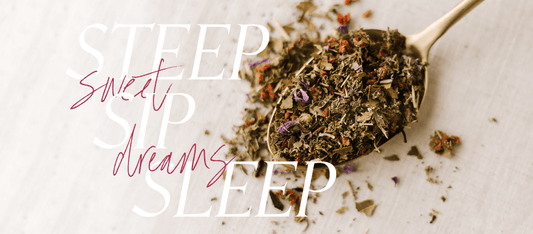
Improve your sleep with Roogenic’s Sleeping Guide
We’ve all been there: tossing and turning at night trying to find that sweet spot and finally fall asleep. Or trying different hacks, like counting sheep - does that even work for anyone? Most of the time we just end up counting our worries! Insomnia is a problem many of us struggle with. Lack of sleep can take a serious toll on energy levels, productivity, emotional wellness and overall health. If you’re reading this, you’re probably well aware of the negative impact of sleepless nights. You’re probably also wondering if there’s a way to sleep better naturally. While there’s no cure for insomnia, there are ways you can manage it and slowly teach your mind and body to relax again, increasing your chances of peacefully drifting off at night. To help you with that, we’ve created the Complete Sleeping Guide, a brochure that comes free with our Native Relaxation Tea or Native Sleep Tea. Let’s have a look and see how it can help you! Complete Sleeping Guide While we’re stuck in our daily grind, trying to tackle all the tasks, responsibilities and challenges life throws at us, our minds never get a chance to unwind. Sometimes there’s so much going on that we’re troubled by racing thoughts long after we’ve laid down in bed to sleep. The Complete Sleeping Guide was created to help you naturally regain control over your nighttime rest. It covers the benefits of the five Native Australian Bush Plants our two sleep tonics are designed with: jilungin, lemon myrtle, aniseed myrtle, native lemongrass and strawberry gum leaf. All of these plants have been traditionally used to support deep & consistent sleep, relax the mind or promote overall wellbeing. There’s also a complete brewing guide included - simply follow the instructions and enjoy a soothing cup of tea before bed. Connecting with the community Our Sleeping Guide also features a section dedicated to the Indigenous community that pioneered the bush food movement. Here you’ll meet Elder Bruno of the Nyul Nyul Community, our dear friend and respected Indigenous grower. We’ve been working together for years to create wholesome bush plant blends, while also continuously connecting with and supporting the community that has given so much to us. Developing good sleep hygiene Finally, our Sleep Guide covers a few naturopathic tips to achieve better sleep by developing good sleep hygiene habits. These small changes are meant to ease the mind into a more relaxed space, allowing you to unwind come bedtime. Follow these tips to create a wholesome evening ritual - not only will you feel more relaxed, but you’ll also enjoy doing something for yourself after a long, exhausting day. Get your copy online After getting a lot of positive feedback from our customers, we decided to make this useful guide easier to access. You can now get our Roogenic Sleeping Guide online. Simply click on the link below to gain access to the electronic version. Download the Roogenic Sleep Guide here.DisclaimerThis product is not intended to diagnose, treat, cure, or prevent any disease. For medical advice please seek the guidance of a qualified medical practitioner before using our products.
Read moreImprove your sleep with Roogenic’s Sleeping Guide
We’ve all been there: tossing and turning at night trying to find that sweet spot and finally fall asleep. Or trying different hacks, like counting sheep - does that even work for anyone? Most of the time we just end up counting our worries! Insomnia is a problem many of us struggle with. Lack of sleep can take a serious toll on energy levels, productivity, emotional wellness and overall health. If you’re reading this, you’re probably well aware of the negative impact of sleepless nights. You’re probably also wondering if there’s a way to sleep better naturally. While there’s no cure for insomnia, there are ways you can manage it and slowly teach your mind and body to relax again, increasing your chances of peacefully drifting off at night. To help you with that, we’ve created the Complete Sleeping Guide, a brochure that comes free with our Native Relaxation Tea or Native Sleep Tea. Let’s have a look and see how it can help you! Complete Sleeping Guide While we’re stuck in our daily grind, trying to tackle all the tasks, responsibilities and challenges life throws at us, our minds never get a chance to unwind. Sometimes there’s so much going on that we’re troubled by racing thoughts long after we’ve laid down in bed to sleep. The Complete Sleeping Guide was created to help you naturally regain control over your nighttime rest. It covers the benefits of the five Native Australian Bush Plants our two sleep tonics are designed with: jilungin, lemon myrtle, aniseed myrtle, native lemongrass and strawberry gum leaf. All of these plants have been traditionally used to support deep & consistent sleep, relax the mind or promote overall wellbeing. There’s also a complete brewing guide included - simply follow the instructions and enjoy a soothing cup of tea before bed. Connecting with the community Our Sleeping Guide also features a section dedicated to the Indigenous community that pioneered the bush food movement. Here you’ll meet Elder Bruno of the Nyul Nyul Community, our dear friend and respected Indigenous grower. We’ve been working together for years to create wholesome bush plant blends, while also continuously connecting with and supporting the community that has given so much to us. Developing good sleep hygiene Finally, our Sleep Guide covers a few naturopathic tips to achieve better sleep by developing good sleep hygiene habits. These small changes are meant to ease the mind into a more relaxed space, allowing you to unwind come bedtime. Follow these tips to create a wholesome evening ritual - not only will you feel more relaxed, but you’ll also enjoy doing something for yourself after a long, exhausting day. Get your copy online After getting a lot of positive feedback from our customers, we decided to make this useful guide easier to access. You can now get our Roogenic Sleeping Guide online. Simply click on the link below to gain access to the electronic version. Download the Roogenic Sleep Guide here.DisclaimerThis product is not intended to diagnose, treat, cure, or prevent any disease. For medical advice please seek the guidance of a qualified medical practitioner before using our products.
Read more